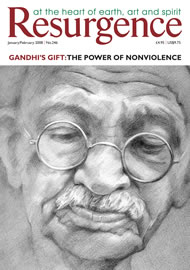(My) Dying is Fun
Christopher Day
Trafford Publishing, UK, 2007, £9.99
FIRST AND FOREMOST, this is a very funny book. Christopher Day manages to convey the challenges, pitfalls and pratfalls of living with a severely disabling illness without evoking pathos. He shares the most intimate and often most humiliating consequences of his disease with the reader and yet the only tears I wiped away were those of laughter. Day is dying of Motor Neurone Disease.
This book creates an empathy with the author, enabling a deeper understanding of the day-to-day realities (pun unintended!), ranging from the truly perilous to the merely irritating, that confront not only him but anyone living with disabilities. For Day the most mundane yet necessary aspects of life are fraught with potential for disaster: nothing physical is simple or easy. Such conditions render a sense of humour ever more essential and Day’s wholehearted embracing of the funny side allows a comic genius to shine.
When Day’s indomitable spirit finally shuffles off, falls over and/or out of this mortal coil, wherever his uniquely quirky soul is, that place will be typified by emanations of a vast amusement accompanied by peals of cosmic laughter. • LB
World Changing
Edited by Alex Steffen
Harry N. Abrams Inc., USA, 2006, £16.99
THIS BOOK IS a compendium of ideas about how to meet the great challenges of our day. Taken together, these present a picture of a future that is not dark or catastrophic, but one that is full of hope and within our grasp. The ultimate goal of World Changing is to provide ideas and stories that suggest ways in which each of us can create new solutions.
World Changing is an encyclopedic tome which should be a constant source of reference in every household. This isn’t a book you read and then leave to gather dust on the bookshelf; it’s interactive – you can participate and input your ideas to the website: www.worldchanging.com. The whole idea is that people embrace good ideas, find new ways forward, and live and share what they learn.
The future needs to be bright, green, and freely available to all. • JC
How Many Lightbulbs Does it Take to Change a Planet?
Tony Juniper
Quercus, UK, 2007, £12.00
THE ENVIRONMENTAL CHALLENGES faced by humankind at the start of the 21st century are daunting. In this book Tony Juniper, Director of Friends of the Earth, maintains that economic policies and decisions are the source of most of them.
From an environmental perspective consumption is an almost blind process; rarely do we see the consequences of our choices and so, Juniper argues, the way to meet environmental challenges is political – we not only need to change the lightbulbs ourselves, but we also need laws to change them.
Given the national and global scale of many of the problems we face, how can one individual begin to make a difference? It all seems too much to cope with. However, this book is full of excellent and practical advice – it opens your eyes to the ‘bigger picture’. How Many Lightbulbs Does it Take to Change a Planet? is not so much about what you can do; it is more about what needs to be done. • JC
Dharamsala Diaries
Swati Chopra
Penguin, India, 2007, Rs 295
MANY PEOPLE MAKE the spiritual pilgrimage to Dharamsala, the home of the Dalai Lama in exile – indeed the author of this engaging book, Swati Chopra, believes that, as in Mecca or Gethsemane, the potential of nurturing a spiritual renaissance in our time lies in Dharamsala. Yet the journey is arduous both physically and spiritually. It begins as a seed of wanting – to connect with the numinous, the otherworldly – but soon becomes a seed of awakening. The very materialism that people seek refuge from in Dharamsala stares them in the face. Dharamsala is a mirror on the world. Ultimately though, the journey engages the pilgrim at the deepest level. “Hell is right here, in the mind that is restless, conflicted, harsh – as is heaven, in the state of being that is at peace, calm, friendly. In our day, how many times do we oscillate between heaven and hell?” In a profoundly reverential way, the book brings alive the nature of Dharamsala and the stories of those who live there. It is a travelogue of the spirit. • LH
Green Up!
Will Anderson
Green Books, UK, 2007, £7.95
THIS COMPACT LITTLE reference guide to greening your home is brimful of practical advice and good ideas. In an easy-to-reference A–Z format you can find out all the pros, cons, risks, problems and benefits of many green retrofit options. From condensing boilers to heat-pumps, rainwater-collection systems to underfloor heating, the book is written with conviction and authority. The author, Will Anderson, has significant experience in this field, being a self-builder himself and author of Diary of an Eco-builder – so his advice is backed by sound credentials. Just as I didn’t know that “dishwashers are no longer environmental outcasts” because of improvements to their efficiency and water usage, neither did I realise just how expensive an automated wood-pellet stove can be. That’ll have to go back on my ‘Wish List’, then. As we burn more energy in our homes than in industry, on the roads or by flying, this book can help us to all to reduce our ecological impact. • LH
Lynn Batten, Juliette Collins and Lorna Howarth are members of the Resurgence team.







